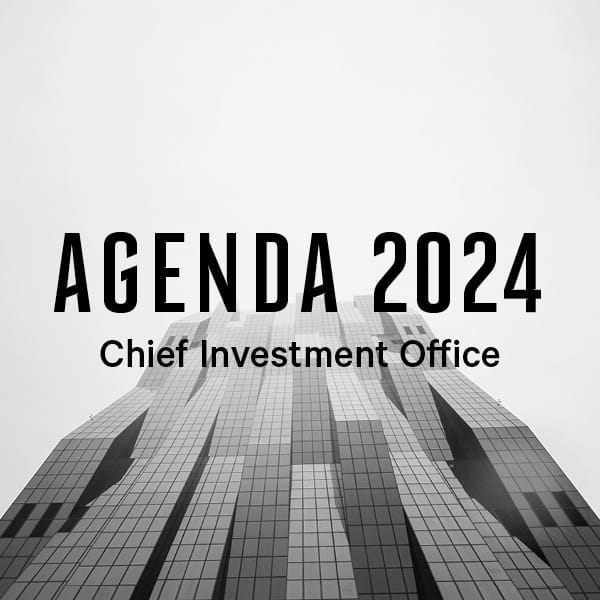-

Environmental, social and governance (ESG) issues have featured prominently in headlines both domestically and globally over the last few years. Australia’s bushfires and the recently held COP26 conference have put the focus on the need for action on climate change; the COVID crisis has brought a range of social issues to the fore, including gender and racial diversity, equality and human rights; while several instances of poor corporate behaviour by leading ASX companies has highlighted the necessity of working towards a higher level of corporate governance.
These events have undoubtedly helped to shape investor behaviour and accelerate the trend towards responsible investment. So how have Australian fund managers adapted to this changing environment?
-
The Australian equity market

From an ESG perspective, the composition of the Australian equity market is over-represented with companies in certain sectors that have poor ESG credentials, while it has little exposure to several others.
Fossil fuels is, without doubt, one of the more problematic sectors for Australian investors as actions to limit climate change in the coming decades continue grow. The ASX’s large diversified miners – BHP, Rio Tinto and South32 have all historically mined thermal coal, though all three have reduced their exposure or exited it altogether in recent years. Metallurgical coal is also a significant source of revenues, though has been less of a focus for investors due to a lack of viable alternative in the steel making process.
While coal may have been the initial frontier for ESG investors that focus on the ‘E’, the oil and gas industry is now facing similar pressures as the world looks to a future with more renewable energy and electric vehicles. The Australian equity market has a large exposure in the sector, which has expanded in the last decade on the back of the expansion in LNG.
Gambling is another sector which has a large domestic presence. Aristocrat Leisure is a leading global manufacturer of poker machines and has also branched into online casinos; listed casino operators include Crown, Star Entertainment and SkyCity; while the largest wagering operator is Tabcorp.
The market’s exposure to alcohol shrunk significantly between 2009 and 2011 when Lion Nathan and Foster’s were acquired by international beverage giants. These days, the largest pure listed companies are Treasury Wine Estates and the recently demerged (from Woolworths) Endeavour Group.
In other sectors that screen poorly on ESG issues, Australia has little to no representation among large or small caps. These include tobacco, weapons and pornography. Additionally, with our service-based economy with little manufacturing, issues such as human and labour rights abuses and animal cruelty are all generally easier to manage for investors
-
Many recent corporate transgressions

Increasing levels of corporate engagement has been a feature of the Australian market in recent years when it comes to ESG issues given their potential to impair value when not addressed. There have been numerous examples of transgressions by companies in this time that have highlighted that good governance is an attribute that should be valued. These include Rio Tinto’s destruction a sacred indigenous site at Juukan Gorge in WA, AMP’s poor handling of a sexual harassment case, a Royal Commission finding that Crown Resorts had engaged in illegal conduct which put its casino licence at risk, and the large number of guilty parties to emerge from the financial services Royal Commission.
ESG-driven corporate activity is another outcome to emerge in the Australian market. In the last 12 months, Woolworths has demerged its liquor arm (which includes brands such as Dan Murphy’s) into a separate listed entity; BHP has announced the sale of its energy business to Woodside Petroleum, which will significantly reduce BHP’s exposure to fossil fuels; while early this year, AGL Energy announced plans to split the company into two businesses, with one holding its power generation assets (with a large exposure to coal) and the other its retail business. In each case, the divestments have allowed companies to effectively exit businesses that are increasingly being screened out by investors, thus helping to eliminate any discount that may have been consequently applied to their share price.
-
How managers have been reacting

Responsible investment among Australian equities funds has continued to show strong growth in recent years, illustrating a greater focus among companies, fund managers and investors alike. The latest Responsible Investment Benchmark Report (RIMB) highlighted that responsible investment AUM in Australia grew from $983m in 2019 to $1,281m in 2020 for year on year growth of 30%.
There are different levels of responsible investing, with the most basic being ESG integration, to negative screening and corporate engagement, to the highest level being impact investing, which specifically targets investments in industries that are looking to make a positive change to social or environmental problems. The following chart from the RIMB illustrates the breakdown of responsible investment in Australia by the different levels of ESG awareness. It shows that the ‘lighter’ forms of responsible investing are much more prevalent in the Australian market, while sustainability/theme and impact investing have so far gained less traction. This is, perhaps, not surprising, given that it includes many ‘core’ style large cap equity funds that have in recent years sought to meet a minimum ESG standard while allowing them the flexibility to continue to select stocks from a broad investment universe.
Chart 1: Responsible Investment in the Australian Market

Source: Responsible Investment Benchmark Report 2020
Negative screening is one of the more straightforward and easier to implement ways of incorporating ESG into an investment process as it simply excludes sectors of the market that fail on environmental or social grounds. The chart below (data from RIMB) illustrates the most common exclusions. Tobacco (76% of funds that employ exclusions) and controversial weapons (64%) are the two most common sectors screened out domestically, although these are easier to implement in the domestic market given its lack of exposure to both. Of the more problematic sectors for the Australian market, gambling (58%), fossil fuels (53%) and alcohol (49%) are all also screens that are widely used.
Chart 2: Negative Screens Used By Australian Managers

Source: Responsible Investment Benchmark Report 2020
Managers that provide reporting on ESG issues and corporate engagement is evidence of putting their responsible investing processes into action. The RIMB report notes that 31% of mangers are now reporting on their corporate engagement activities and outcomes (an improvement from the 21% in the prior year) and a further 41% report on activities or outcomes. While there is not yet a uniform standard in ESG reporting, we have seen an increasing range of data and reports from managers, including AGM resolution voting outcomes, case studies of ESG engagement, carbon emissions data of companies within a manager’s portfolio, and their alignment with the UN’s Sustainable Development Goals.
While many managers can easily incorporate the use of external ESG company ratings into their analysis (such as Sustainalytics and MSCI), a trend has been to complement this data with the fund manager’s own proprietary rating system. For some larger teams, this has led to the recruitment of ESG-specific roles, or alternatively, a dedicated ESG leader within the investment team. In other cases, investment mangers have enhanced by RI capabilities through acquisition, such as Pendal’s purchases of Regnan.
Social issues have historically taken a back seat to governance and, more recently, environmental issues, and are generally regarded as the most challenging to analyse. However, they have risen in prominence over the last few years. A key driver of change has been the introduction of the Modern Slavery Act, which has now been in place for nearly three years. The act compels businesses with in excess of $100m in revenue to report on their exposure and management of modern slavery risks within their supply chains.
Escala considers responsible investment best practice for managers to be signatories to the United Nationals Principles for Responsible Investment (UNPRI), or alternatively, adhere to a published RI charter or policy. According to Lonsec’s latest sector report on Australian equities funds, almost 63% of managers within the sector are UNPRI signatories, while the RIMB report notes that 92% of managers have a RI policy (though not all opt to make their policy public). This number aligns with our own observations of Australian equities funds, but we expect it to continue to grow over time.
While there is a lack of universally accepted standards and regulatory guidance with regards to ESG, the level of companies reporting substantiative ESG information is rising. PWC’s latest survey of ASX 200 companies showed that 87% of companies met this standard in FY21, up from 58% on the prior year. There is, however, areas for improvement. Only 36% of companies have a net zero target, while only 47% disclose a gender diversity policy with measurable targets.
Compared to international equity managers, however, Australian funds tend to perform poorly when it comes to the transparency of their fund holdings. According to the same report, only 36% of investment managers disclose their full holdings and 27% disclose some holdings, while more than a third do not disclosure their holdings to the public at all.
This data is consistent with our own experience in researching domestic funds. The relatively concentrated nature of the Australian equity market does go some way to explaining this finding, though at the same time it does make it more difficult to assess individual funds on ESG metrics.
From our own observations, small cap managers are typically less advanced with incorporating responsible investing than their large cap peers. This should perhaps be unsurprising as small cap managers often lack the scale to supply adequate resources to integrate comprehensive ESG processes. Further, small cap companies are typically less advanced with their own ESG disclosures, making the task more difficult for small cap fund managers.
For most small cap funds, however, governance issues have historically been monitored closely given a broader spread of levels of corporate governance among smaller companies. Active managers thus have greater opportunity to tilt their portfolios towards companies that score well on governance measures. One other point of note is that, while not specifically targeting companies that score well on environmental issues, small cap fund portfolios will often score well from an environmental point of view as many have a low or zero allocation to the resources sector.
-
Escala funds

Escala’s preferred and highest-rated manager for ESG-conscious investors is the Alphinity Sustainable Share Fund, which employs an investment process of negative screens, active company engagement, independent ESG research and positive screening which maps the portfolio to the UN’s Sustainable Development Goals.
Among our other large cap managers, Pendal has invested significantly in its RI capabilities through its acquisition of Regnan, which provides an in-house dedicated ESG research, engagement and advisory team; while WaveStone has the highest possible PRI rating across strategy and governance, ESG incorporation and its active ownership to RI.
From our small cap managers, we highlight Spheria as having well-developed ESG processes.
-
Conclusion
Responsible Investment continues to gain traction in the Australian market and it has been demonstrated in many studies that it adds value to an investment process and ultimately, returns. At Escala, our ESG assessment of funds is an evolving process that will continue to be refined over time as we look to identify managers who adhere to RI best practice.











